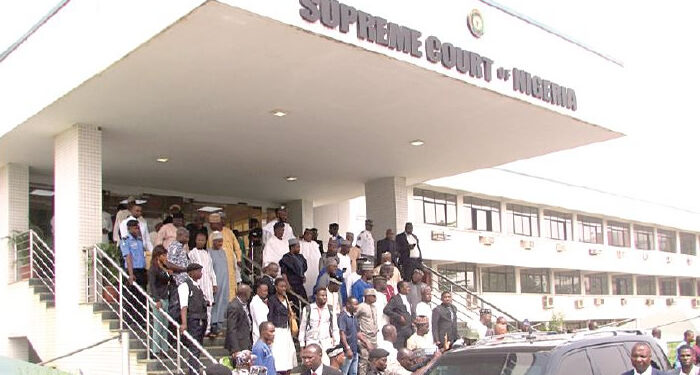The Supreme Court is set to deliver a crucial ruling today on a legal challenge by 16 state governments, questioning the constitutional validity of the Economic and Financial Crimes Commission (EFCC). The governors claim that the laws establishing the anti-graft agency were not properly enacted according to Nigeria’s constitution.
The states argue that the EFCC Establishment Act, derived from a United Nations Convention against corruption, was not correctly domesticated under Section 12 of the 1999 Constitution. They maintain that the law lacked the necessary approval from state legislatures and thus should not apply to states that did not ratify it.
The suit, initiated by Kogi State and joined by 15 others, seeks to nullify the EFCC’s legal standing. A seven-member panel of justices, led by Justice Uwani Abba-Aji, is presiding over the case.
The EFCC has expressed disappointment over the lawsuit, with its Director of Public Affairs, Wilson Uwujaren, stating that those pushing the legal battle are only doing so because they feel threatened by the commission’s anti-corruption efforts.
Uwujaren emphasized the importance of the EFCC in tackling Nigeria’s corruption problems, urging citizens to oppose any moves to undermine the commission. He believes the lawsuit aims to derail ongoing anti-corruption campaigns.
Prominent legal voices, however, are divided. Dr. Olisa Agbakoba, former President of the Nigerian Bar Association, has argued that the EFCC was unconstitutionally established, exceeding the legislative powers of the National Assembly. On the other hand, human rights lawyer Femi Falana disagrees, insisting that the EFCC’s creation did not violate federalism principles.
Other stakeholders, such as Chico Onumah, Executive Director of the Africa Center for Media Information and Literacy, and Kolawole Oluwadare of the Socio-Economic Rights and Accountability Project, have defended the EFCC, stating that the commission’s constitutionality and contribution to the fight against corruption are beyond doubt.
As the nation waits for the Supreme Court’s verdict, the outcome could have far-reaching implications for Nigeria’s anti-corruption framework and governance.
























